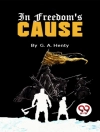In ‚War and Peace, ‚ Leo Tolstoy masterfully weaves a complex narrative that encompasses the lives of numerous characters against the sprawling backdrop of the Napoleonic Wars. This epic novel presents a profound exploration of themes such as fate, free will, and the nature of history through a distinctive literary style that blends realism, philosophical reflection, and detailed characterization. The interplay between personal lives and grand historical events is highlighted by Tolstoy’s intricate prose, immersing readers into a dynamic tableau of 19th-century Russian society. Tolstoy, influenced by his own experiences as a soldier and his deep philosophical inquiries into morality and human existence, crafts ‚War and Peace‘ as not only a historical account but also a reflection of the eternal human condition. His journey from aristocracy to advocating for social justice informed the profound insights and existential questions posed in the narrative. Tolstoy’s own struggles with faith, love, and the societal norms of his time contribute richly to the novel’s emotional depth and intellectual rigor. ‚War and Peace‘ is indispensable for readers interested in historical literature, philosophy, and the human psyche. This monumental work invites readers to ponder their own lives while being enthralled by the intricate plot and vivid characterizations, solidifying Tolstoy’s legacy as a titan of global literature.
Über den Autor
Count Lev Nikolayevich Tolstoy, known more commonly as Leo Tolstoy, was a towering figure in Russian literature, born on September 9, 1828, in Tula Province, Russia. His literary career spans numerous decades during which he penned some of the most celebrated works in world literature. Tolstoy’s magnum opus, ‚War and Peace, ‚ epitomizes his intricate storytelling and deep insight into human nature. Published between 1865 and 1869, this novel intricately weaves individual lives and broader historical events, reflecting Tolstoy’s interests in the philosophical issues of war, fate, and history’s shaping of human lives. His style, characterized by its moral depth, realistic narration, and psychological complexity, has garnered broad acclaim and a lasting legacy in world literature. Tolstoy’s literary method often involved extensive character development and meticulous research to achieve the authenticity that marks his works. Tolstoy wasn’t just a novelist; he also wrote essays and plays that echoed his personal philosophical stances. He became an influential moral thinker and, in later life, his ideas on nonviolent resistance had a profound impact on figures such as Mahatma Gandhi and Martin Luther King Jr. Leo Tolstoy died on November 20, 1910, but his literary accomplishments continue to echo through time, immortalized by his contributions to literature and to the philosophical discourse surrounding the human condition.












